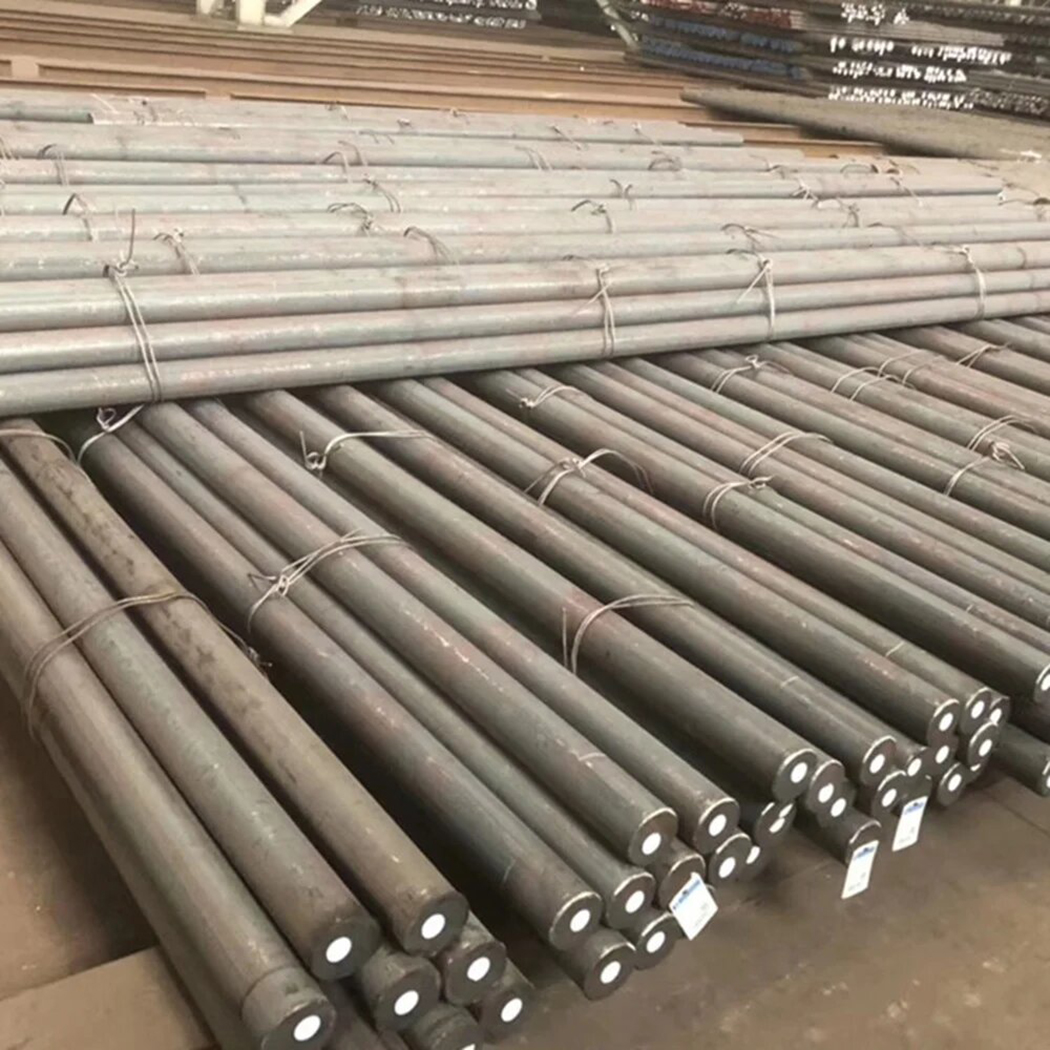
1.7709 is a chromium-molybdenum-vanadium alloy steel known for its high strength, toughness, and good hardenability. It's commonly used in the production of round bars for various industrial applications where these properties are required.
Chemical Composition:
| Chemical Element | Minimum (%) | Maximum (%) |
|---|---|---|
| Carbon (C) | 0.17 | 0.25 |
| Silicon (Si) | 0.15 | 0.40 |
| Manganese (Mn) | 0.40 | 0.70 |
| Phosphorus (P) | - | 0.035 |
| Sulfur (S) | - | 0.035 |
| Chromium (Cr) | 1.00 | 1.30 |
| Molybdenum (Mo) | 0.25 | 0.35 |
| Vanadium (V) | 0.15 | 0.30 |
Mechanical Properties:
Physical Properties:
I. Density: The density of 1.7709 alloy steel is approximately 7.85 g/cm³. This value is standard for most steels.
II. Melting Point: The melting point of 1.7709 alloy steel is typically around 1420-1460°C (2588-2660°F), similar to other alloy steels of its type.
III. Thermal Conductivity: The thermal conductivity of 1.7709 alloy steel is typically around 42-51 W/(m·K). This property indicates the material's ability to conduct heat and is important for applications involving heat transfer.
IV. Specific Heat Capacity: The specific heat capacity of 1.7709 alloy steel is typically around 460-470 J/(kg·K). This property denotes the amount of heat required to raise the temperature of a unit mass of the material by one degree Celsius.
Manufacturing Standards: These round bars may be produced according to various international standards such as:
Surface Finish: Round bars may come with a variety of surface finishes, including as-rolled, rough turned, peeled, or polished, depending on the desired application and customer requirements.
Applications: These round bars are commonly used in the manufacturing of components such as gears, shafts, axles, bolts, and other machine parts subjected to high stress and wear conditions in industries like automotive, aerospace, machinery manufacturing, and power generation.